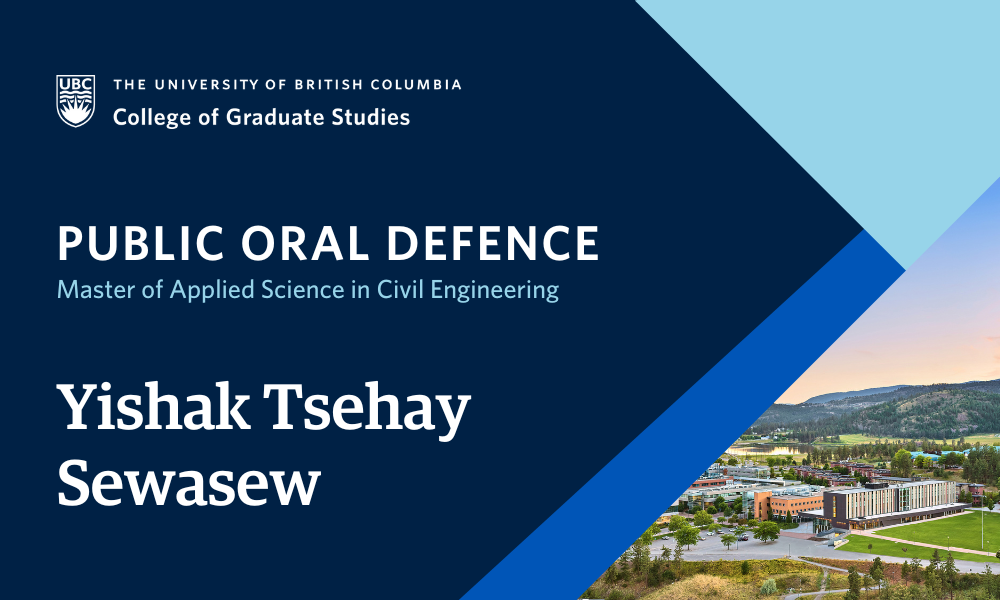
- This event has passed.
Thesis Defence: Application of Digital Tools for Urban Heritage Conservation
July 9, 2024 at 10:00 am - 2:00 pm

Yishak Tsehay Sewasew, supervised by Dr. Solomon Tesfamariam, will defend their thesis titled “Application of Digital Tools for Urban Heritage Conservation” in partial fulfillment of the requirements for the degree of Master of Applied Science in Civil Engineering.
An abstract for Yishak Tsehay Sewasew’s thesis is included below.
Defences are open to all members of the campus community as well as the general public. Please email solomon.tesfamariam@ubc.ca to receive the Zoom link for this defence.
ABSTRACT
This thesis explores the application of digital tools for urban heritage conservation using the historic port city of Massawa as a case study. The digital applications considered include heritage building and 3D city modelling with Historic Building Information Modeling (HBIM) principles, digital inventory, environmental comfort assessment, and design applications.
The thesis first explored challenges and best practices along with prospects in heritage conservation to focus on resolving particular aspects of challenges or capitalize on trends of good practices. This was integrated using current best practice applications in heritage conservation such as HBIM. This research develops an alternative HBIM development method for inaccessible heritage sites without requiring modern data acquisition and processing tools. Unlike prior methods which mostly assume site accessibility for conducting a study, availability of expensive cutting-edge technologies, and particular expertise for data acquisition and processing, the proposed method relies on simple steps using an image. The results of the proposed modelling indicate feasibility of creating HBIM from images with a higher degree of precision. The result was extended to develop 3D city model of Massawa, comprising four classes of models. This justifies the possibility of developing detailed 3D city models with limited resources, sidestepping the need for cutting-edge tools and associated costs.
The 3D city model in its current state is proposed to be used in several applications. Digital inventory, environmental comfort assessment, and design applications were considered. The concept of Built Heritage Passport for cultural heritage management was introduced and illustrated in four passport layers to assist cultural heritage management, sustainable urban heritage conservation, and promoting circular economy. It aims to provide a comprehensive, efficient, accessible, and easy-to-use built heritage inventory for multitude of applications. Environmental comfort assessment was also conducted focusing on pedestrian-level wind environment. The effects of urban fabric, modelling details, and evolution of urban form on wind micro-climate was studied. Design application was finally illustrated based on the results of this thesis and other studies and recommendation for Massawa. Overall, the thesis presented easy to use modelling, management, and assessment for local authorities in urban heritage conservation.